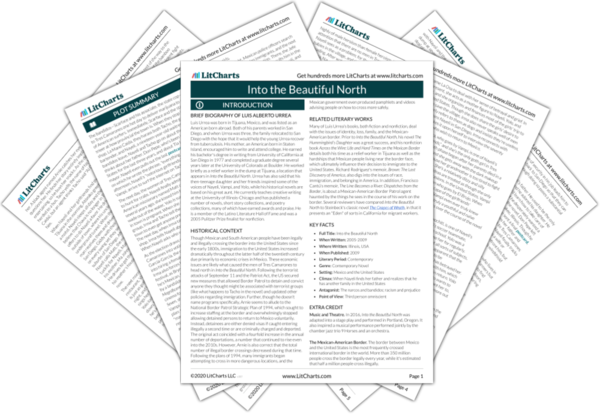Although the border is an arbitrary line in the desert, for Nayeli and her friends, the border is the difference between poverty and shining idealism. Meanwhile, the teargas suddenly shifts the dynamic between the Border Patrol officers and the Mexicans from friendly and teasing to serious and dangerous. Just as the group will find kindness and compassion in unexpected places, they will also be faced with brutal racism, nationalism, and violence.
